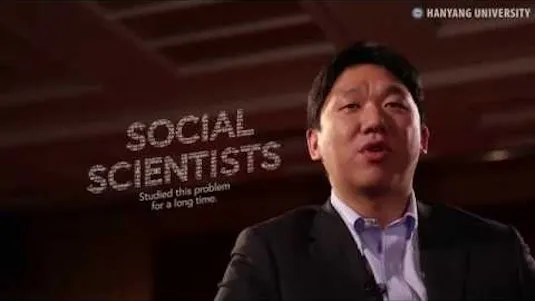
Economics of Crime 
This course will introduce you to the economic model of crime, exploring policies on crime and motivations for committing crimes. Learn about the rational choice framework, key determinants of criminal choice, policing and punishment strategies, and the impact of economics on crime. Gain a better understanding of crime and search for ways to lower criminal risks in our society. No special requirements needed. ▼
ADVERTISEMENT
Course Feature
![]() Cost:
Cost:
Free
![]() Provider:
Provider:
Futurelearn
![]() Certificate:
Certificate:
Paid Certification
![]() Language:
Language:
English
![]() Start Date:
Start Date:
12th Nov, 2018
Course Overview
❗The content presented here is sourced directly from Futurelearn platform. For comprehensive course details, including enrollment information, simply click on the 'Go to class' link on our website.
Updated in [May 25th, 2023]
This course provides an overview of the Economics of Crime. Students will learn how economic analyses can help us better understand crime problems. The course will cover the rational choice framework and the choices behind committing crimes, criminal policy, and the impact of economics on crime. Students will also explore recent examples of policy interventions designed to reduce crime, and examine the effects of adverse economic conditions and labor markets. No special requirements are needed to take this course, but an interest in economics and crime may be beneficial.
[Applications]
Upon completion of this course, students will be able to apply the economic model of crime to analyze criminal behavior and policy. They will be able to understand the rational choice framework and the choices behind committing crimes, as well as the impact of economics on crime. Additionally, they will be able to discuss the strengths and weaknesses of various topics in crime research, and examine the policing and punishment strategies related to crime.
[Career Paths]
Recommended Career Paths:
1. Crime Analyst: Crime analysts use data and research to identify crime trends and develop strategies to reduce crime. They analyze crime data, develop crime prevention strategies, and provide advice to law enforcement agencies. This role is expected to grow in the coming years as more organizations look to use data-driven approaches to reduce crime.
2. Criminal Justice Policy Analyst: Criminal justice policy analysts use research and data to evaluate the effectiveness of criminal justice policies. They analyze existing policies, develop new policies, and provide recommendations to government agencies. This role is expected to grow as governments look to use evidence-based approaches to reduce crime.
3. Crime Prevention Specialist: Crime prevention specialists work with law enforcement agencies to develop strategies to reduce crime. They analyze crime data, develop crime prevention plans, and provide advice to law enforcement agencies. This role is expected to grow as more organizations look to use data-driven approaches to reduce crime.
4. Criminologist: Criminologists use research and data to study the causes of crime and develop strategies to reduce crime. They analyze crime data, develop theories of crime, and provide advice to law enforcement agencies. This role is expected to grow as more organizations look to use evidence-based approaches to reduce crime.
[Education Paths]
Recommended Degree Paths:
1. Bachelor of Science in Economics: This degree program provides students with a comprehensive understanding of economic theory and its application to real-world problems. Students will learn about the principles of microeconomics, macroeconomics, and econometrics, as well as the economic history of different countries. This degree is becoming increasingly popular as it provides students with the skills and knowledge to analyze economic trends and develop strategies to address economic issues.
2. Master of Science in Criminology: This degree program focuses on the study of crime and criminal behavior. Students will learn about the causes of crime, the impact of crime on society, and the various strategies used to prevent and control crime. This degree is becoming increasingly popular as it provides students with the skills and knowledge to analyze criminal behavior and develop strategies to address crime-related issues.
3. Doctor of Philosophy in Criminal Justice: This degree program focuses on the study of criminal justice systems and their impact on society. Students will learn about the history of criminal justice, the legal system, and the various strategies used to prevent and control crime. This degree is becoming increasingly popular as it provides students with the skills and knowledge to analyze criminal justice systems and develop strategies to address crime-related issues.
4. Master of Public Policy: This degree program focuses on the study of public policy and its impact on society. Students will learn about the principles of public policy, the legal system, and the various strategies used to develop and implement public policy. This degree is becoming increasingly popular as it provides students with the skills and knowledge to analyze public policy and develop strategies to address policy-related issues.
Course Provider

Provider Futurelearn's Stats at AZClass
Discussion and Reviews
0.0 (Based on 0 reviews)
Explore Similar Online Courses

Photoshop Tutorial Easy and Fun!

VIDEO EDITING: The Basics of Editing Videos in FILMORA 8

Python for Informatics: Exploring Information

Social Network Analysis

Introduction to Systematic Review and Meta-Analysis

The Analytics Edge

DCO042 - Python For Informatics

Causal Diagrams: Draw Your Assumptions Before Your Conclusions

Whole genome sequencing of bacterial genomes - tools and applications

Criminology and Criminal Psychology Certified CSI+ Course

Criminology : Fundamentals of Criminal Psychology and Law


Start your review of Economics of Crime